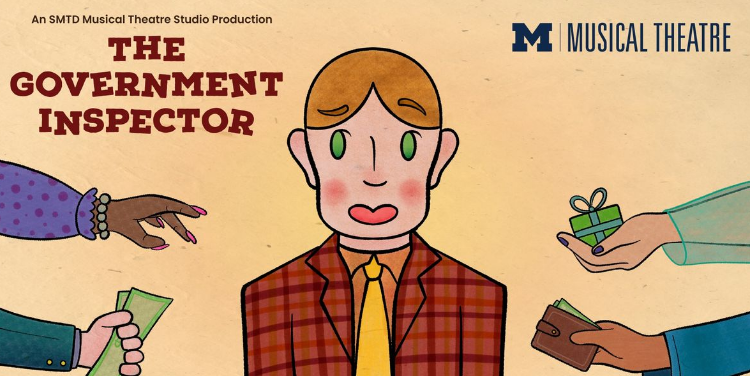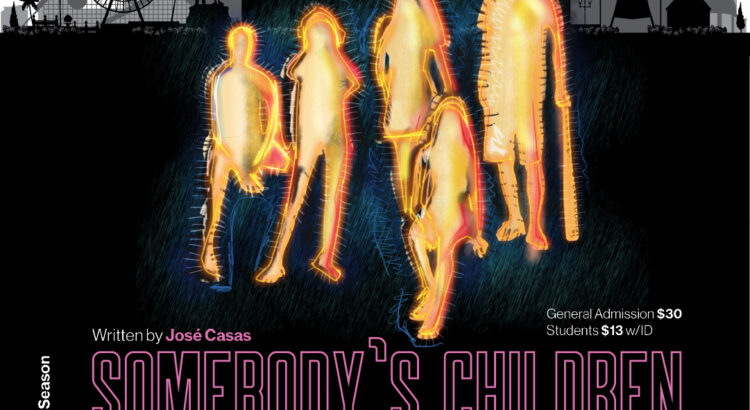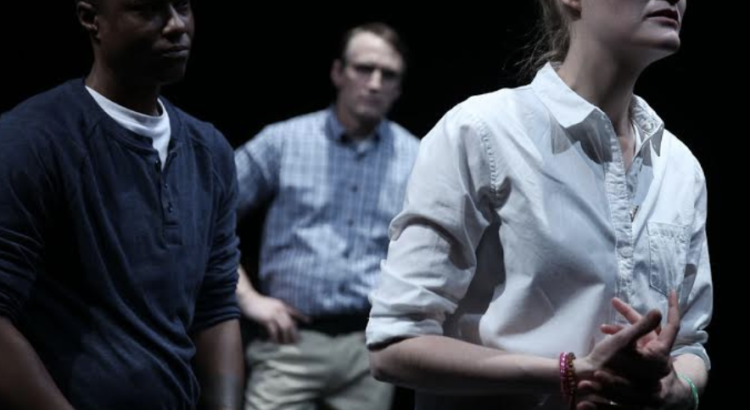Notice of Content: This article references moments of death by suicide and instances of fatphobia in a theatrical performance. Read with care.
Every piece of art should resonate with the urgency of a question: “Why now?” Yet, after watching the University of Michigan Musical Theatre Department’s studio production of The Government Inspector, I’m left scratching my head, struggling to understand the artistic vision.
This comedy of errors originally written in mid-19th-century Russia by Nikolai Gogol follows the story of a small town frightened by the news of an inspector, spying and evaluating the organization of their community. As mistaken identities and drunken behaviors abound, the townsfolk turn to bribery, flirtations, and trusty ol’ vodka to impress their supposed inspector. In Jeffrey Hatcher’s adaptation, what’s supposed to be a poignant satirization of greed, political corruption, and stupidity falls flat in comparison to the glaring offenses performed onstage.
Malcolm Tulip, the director, greatly oversteps when inviting the audience into the world of remote, provincial Russia. Tulip forces audience members to participate in some of the most gruesome moments of the show: this includes an actor gagging onto an audience member’s lap from alcohol consumption, and having a patron hold a mirror for a performer to look into as they perform a staged death by suicide. Irresponsible is the only word that comes to mind. Audience members can’t consent in the dark, and to thrust unsuspecting patrons into distressing scenes without their prior agreement isn’t what they paid for; it’s highly unethical and dangerous.
The offense that takes the cake, however, is the interpretation of the Judge. Not only does the actor don a fat suit, but they use it to its full extent, making a mockery of fat people in a caricature-like fashion. The actor waddles onstage with hands cradling their belly, as if parodying pregnancy. As a plus-size person, I couldn’t help but roll my eyes and think, “We’re fat, not pregnant.” Then, they top it off by taking a fall and flailing around like a pig in mud. This portrayal not only insults the audience with its blatant fatphobia, but also exacerbates its harm with tones of ableism. Such portrayals are far removed from entertainment, serving only to reinforce harmful stereotypes and degrade those of us who are simply living in our bodies.
 What do we have to learn from old or outdated stories? Maybe, this is the wrong question. Instead, let’s ask who should we trust to direct these new interpretations? I would be remiss to place any blame for these offenses or missteps on any students involved. It’s not their fault. Faculty who hold a clear power dynamic over student artists are responsible to lead and uphold an ethical, safe, and responsible production. It’s obvious, in the case of The Government Inspector, that there was a failure to provide such leadership. The themes of corruption and folly in The Government Inspector might have contemporary resonance, but the execution here is tone-deaf.
What do we have to learn from old or outdated stories? Maybe, this is the wrong question. Instead, let’s ask who should we trust to direct these new interpretations? I would be remiss to place any blame for these offenses or missteps on any students involved. It’s not their fault. Faculty who hold a clear power dynamic over student artists are responsible to lead and uphold an ethical, safe, and responsible production. It’s obvious, in the case of The Government Inspector, that there was a failure to provide such leadership. The themes of corruption and folly in The Government Inspector might have contemporary resonance, but the execution here is tone-deaf.
However, to give credit where credit is due, Nicola Troschinetz and Stephanie Reuning-Scherer were hilarious and bubbly in their twin roles as Dobchinsky and Bobchinsky, Ellie Van Engen successfully cements the proposed idea of satire through her costume design, and the ensemble, while lacking relevance and stage time, sure can sing a tune. While the production manages to deliver moments that are both shocking and undeniably funny, these are often overshadowed by its more problematic elements.
You’ll definitely find yourself laughing during The Government Inspector, but at what cost? $16 for students? $25 regular price? Or at the expense of others?







